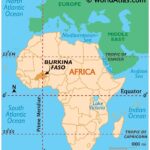 Even after 34 years of his assassination in 1987, the legacy of Marxist-socialist revolutionary leader, Thomas Sankara, continues to inspire his native country Burkina Faso (Africa). A staunch advocate of Pan-African pride, Sankara was a man of reforms at home. Apart from attempts to eradicate Female Genital Mutilation, polygamy and other social evils, the four-year Presidential tenure (1983-1987) of Thomas Sankara, brim with reforms in education, healthcare, governance earned him the title of Africa’s Che Guevara. The adventures of the populist leader were cut short after his assassination by his close aide Blaise Compaoré, who went on to rule Burkina Faso for next 27 years, until he resigned and fled to Ivory Coast in the aftermath of the famous 2014 Burkinabe Uprising meant to restore the democratic order in real terms.
Even after 34 years of his assassination in 1987, the legacy of Marxist-socialist revolutionary leader, Thomas Sankara, continues to inspire his native country Burkina Faso (Africa). A staunch advocate of Pan-African pride, Sankara was a man of reforms at home. Apart from attempts to eradicate Female Genital Mutilation, polygamy and other social evils, the four-year Presidential tenure (1983-1987) of Thomas Sankara, brim with reforms in education, healthcare, governance earned him the title of Africa’s Che Guevara. The adventures of the populist leader were cut short after his assassination by his close aide Blaise Compaoré, who went on to rule Burkina Faso for next 27 years, until he resigned and fled to Ivory Coast in the aftermath of the famous 2014 Burkinabe Uprising meant to restore the democratic order in real terms.
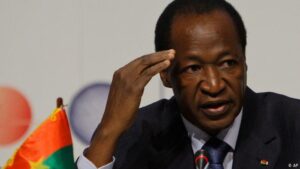
(Pic Credit: UFRGS)
In April 2021, after confirming the charges of assassination, Military tribunal in capital city of Ouagadougou (Burkina Faso) resolved to initiate the trial of the former President Blaise Compaoré. The trial in general, assumes significance in backdrop of ‘National reconciliation’ launched by current President Roch Kabore to unify the country to confront challenges on various fronts.

In the shadows of an almost impossible extradition of the accused, to explore the symbolic significance of the trial, The Voices interviews Brian J. Peterson. Peterson is an Associate professor of History and Director of African Studies Program at Union College, New York, USA. Peterson has also authored a Biography of ‘Thomas Sankara titled ‘Thomas Sankara: A revolutionary in Cold War Africa’ (Indiana University Press, 2021).
1. Sankara continues to be cherished as ‘Africa’s Che Guevara’. What’s your take on the popular title?
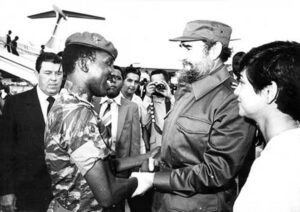
(Pic Credit: Reddit)
Although many African revolutionaries have been anointed with the title “African Che Guevara,” figures such as Samora Machel and Amilcar Cabral for example, the appellation has seemed to have stuck with Sankara, even 30 years after his assassination. Although Sankara and Che were cut from different sorts of cloth, in terms of their personalities and approaches to revolution, the two men belonged to a shared revolutionary culture. Sankara was certainly inspired by Che, and in many ways he appropriated some of Che’s rhetoric and idealism in his reforms which earned him the title. But mostly, I think, the overlap is in the area of how both men emerged after their murders as revolutionary symbols.
2. What had stopped this trial for years, and what does those reasons speak about the nature of political dynamics in the country and the earlier regime? And how would you reflect upon the opposition calling the trials politically motivated?
After Sankara’s murder the Compaoré regime did everything in its power to tarnish the memory and reputation of Sankara, and this regime flat-out refused to entertain investigating his murder. It wasn’t until Compaoré’s abdication in October of 2014 that the judicial system in Burkina Faso was finally able to move forward with investigating Sankara’s murder. Since then there has been some progress, leading to arrest warrants for many of those involved. However, Compaoré’s faction, and his henchmen who allegedly carried out the murder, have been subversive in their approach. They have done everything possible to slow down the judicial process and even derail it. Their political motivation has been to protect themselves and their families from legal exposure and long prison sentences.
3. Why the onset of this trial assumes importance, even when the chances of extradition of Blaise Compaoré from Ivory coast are really bleak?
Even if Compaoré is not extradited for the murders of Sankara and many others, his trial in absentia will be an important event, and hopefully will bring some closure to a very tragic story. The trial will certainly shed light on the murders, and will allow the Burkinabé to move forward. Justice will not be ultimately served until Compaoré and those involved have been apprehended and imprisoned, but I think establishing his guilt will send a powerful message.
4. How far it would be a gesture of ‘justice and reconciliation’ to the masses ?
We must not forget that many others aside from Sankara have been victims of the Compaoré regime. Their stories and sacrifices must be remembered and honored in this process. In terms of national reconciliation, Sankara would have been the first to draw attention to the sacrifices of the people in their struggle against injustice and impunity. He has been the centerpiece of the revolution, but he always wanted to keep the focus on the people. And people fought against the oppressive regime of Compaoré in 2014 uprising, many lost lives too.
5. In a broader scheme of things explain to us the vision of so called ‘national reconciliation’ which has gathered the buzz in the country and under ambit of which this is being pursued.
National reconciliation is an incredibly important vision which plans to confront many ethnic and political challenges in the country. At this juncture Burkina Faso is dealing with many threats, such as jihadist terrorism, climate change, and political instability. President Roch Kabaore have been particularly vocal about this reconciliation project. After his reelection early in the year he appointed a dedicated minister for the same. Burkina Faso is dealing with very formidable challenges right now, but these trials too hold importance of their own. I do think that bringing closure to Sankara’s assassination, and to the murders of Norbert Zongo, and dozens of others, must be addressed.
6. In 2017, the French president, Emmanuel Macron, said France would declassify government documents concerning Sankara’s killing, after being criticized for the role played by the former colonial ruler. How do you think France would be absorbing the developments, given its debated role in the region and country?
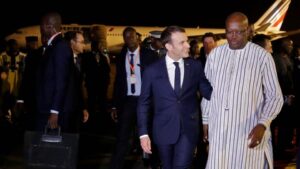
(Pic Credit: Reuters, 2017)
If France wants to remain relevant in Africa, then as Sankara said, France needs to change its policies and approach towards Africa, to decolonise the relationship, to work as a partner, not an imperialist overlord. I think the Burkinabe people are generally forgiving, and would welcome France’s transparency, and this would pay dividends in France’s relationship with Africa. You can’t have a real partnership and cooperation as long as there’s no real trust. The problem is that France has not been trusted in this part of the world, except by neocolonial puppets and strongman. That’s not a recipe for enduring influence in the region.
Interview By NK Jha
Thomas Sankara at a glance
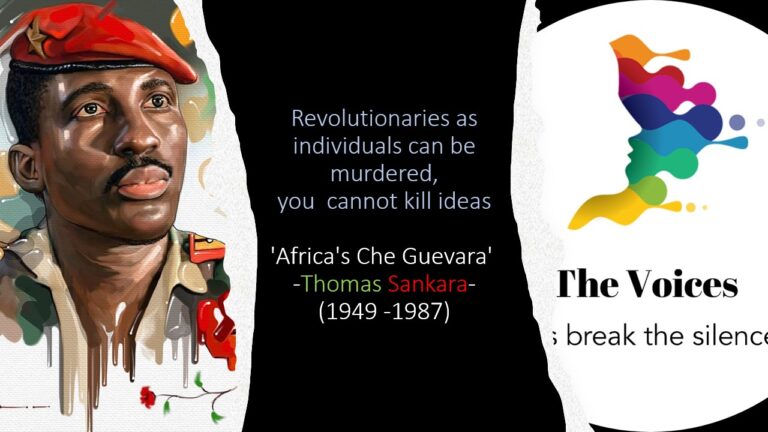
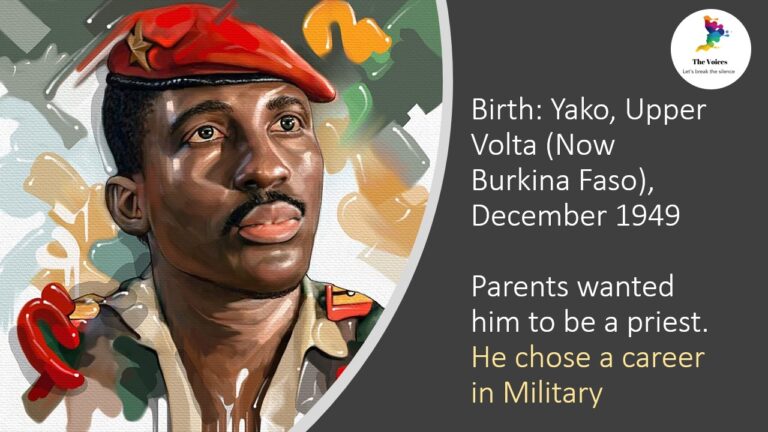
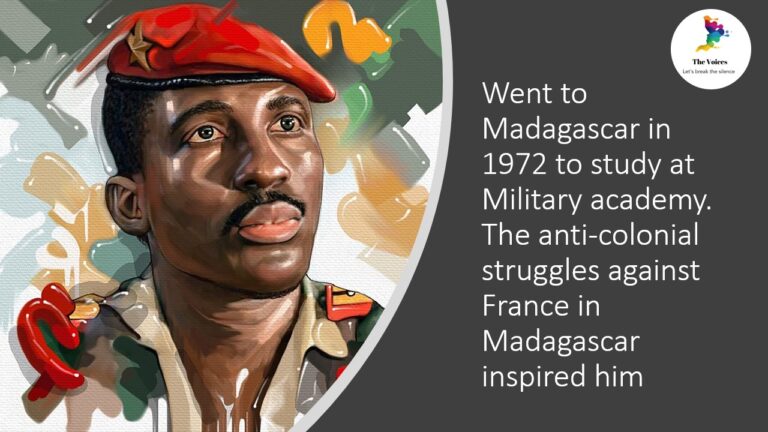
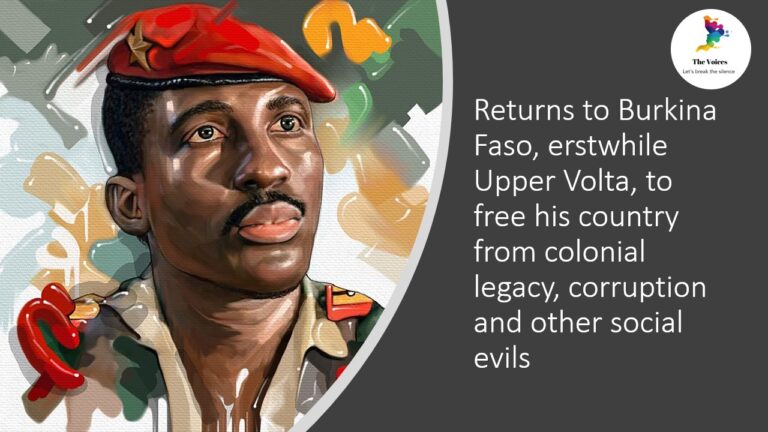
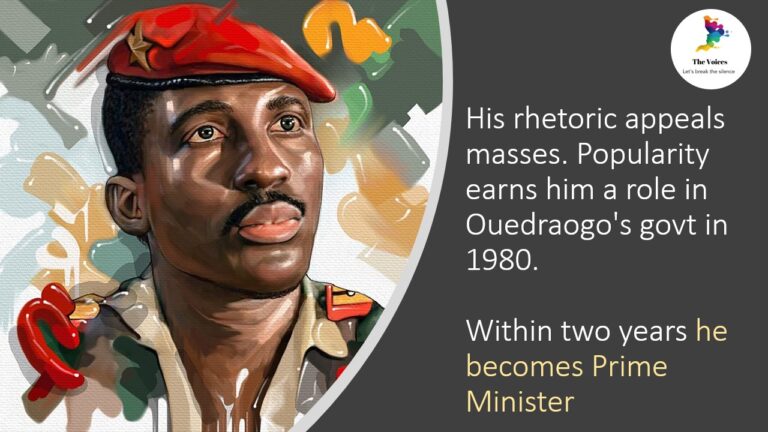
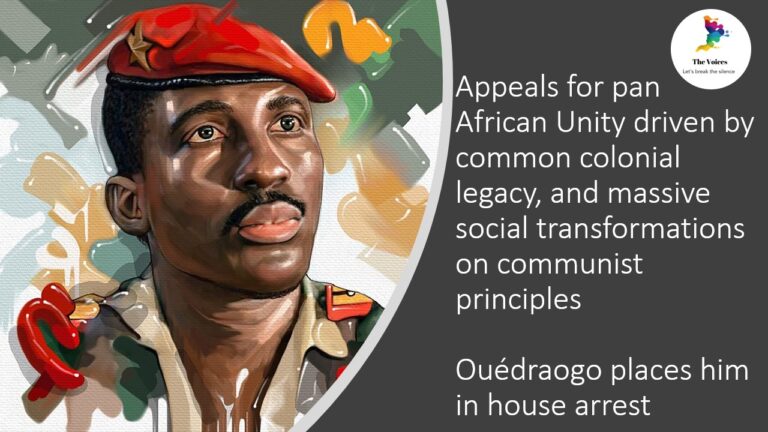
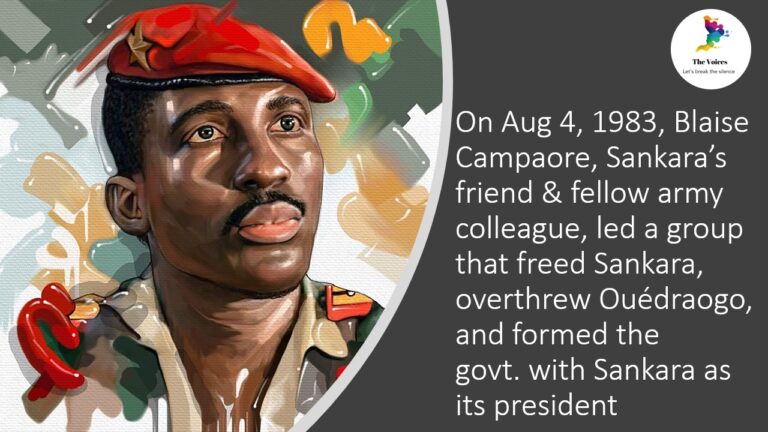
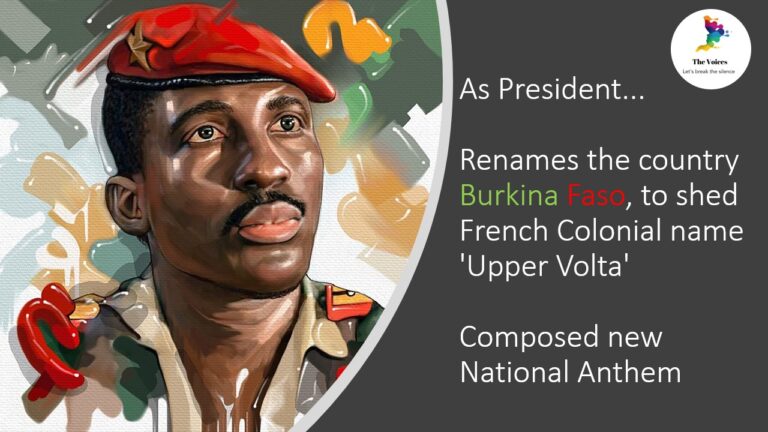
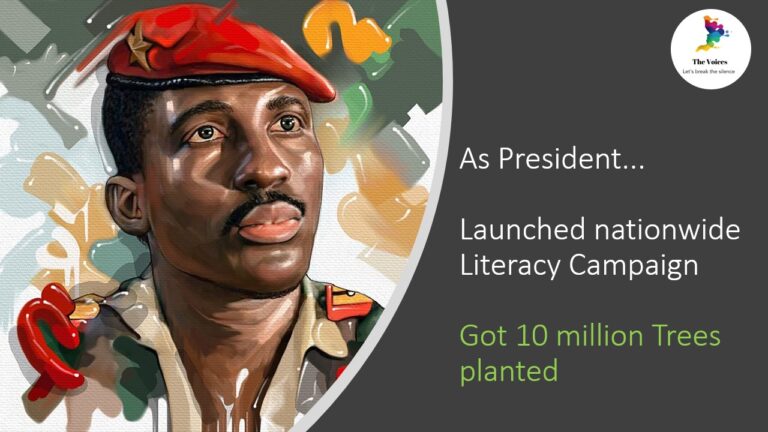
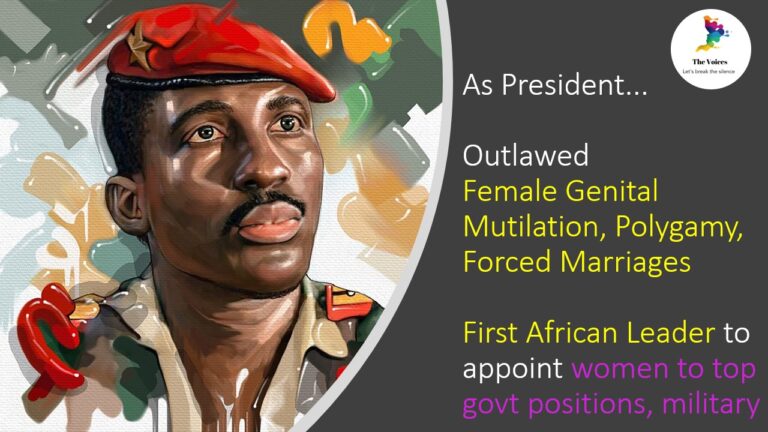
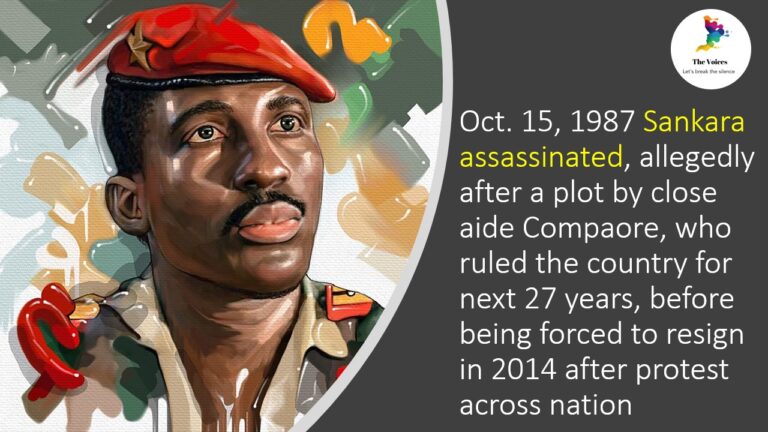
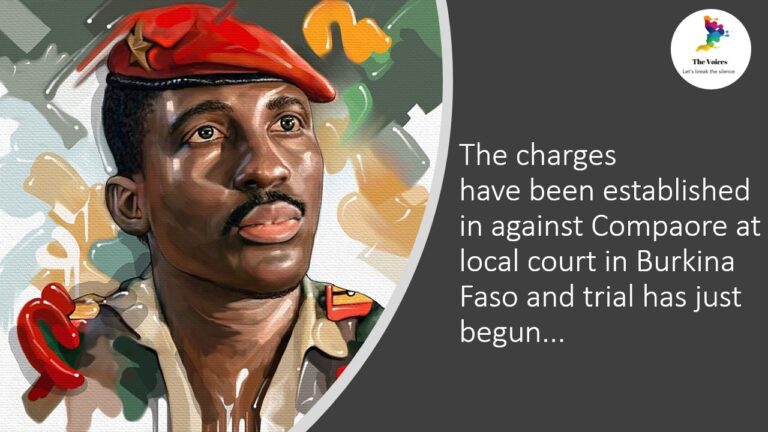
Slider Image Credit: NK Jha
Story Edited By: V Prem Shanker
Slider Cover Credit: Pinterest.com

